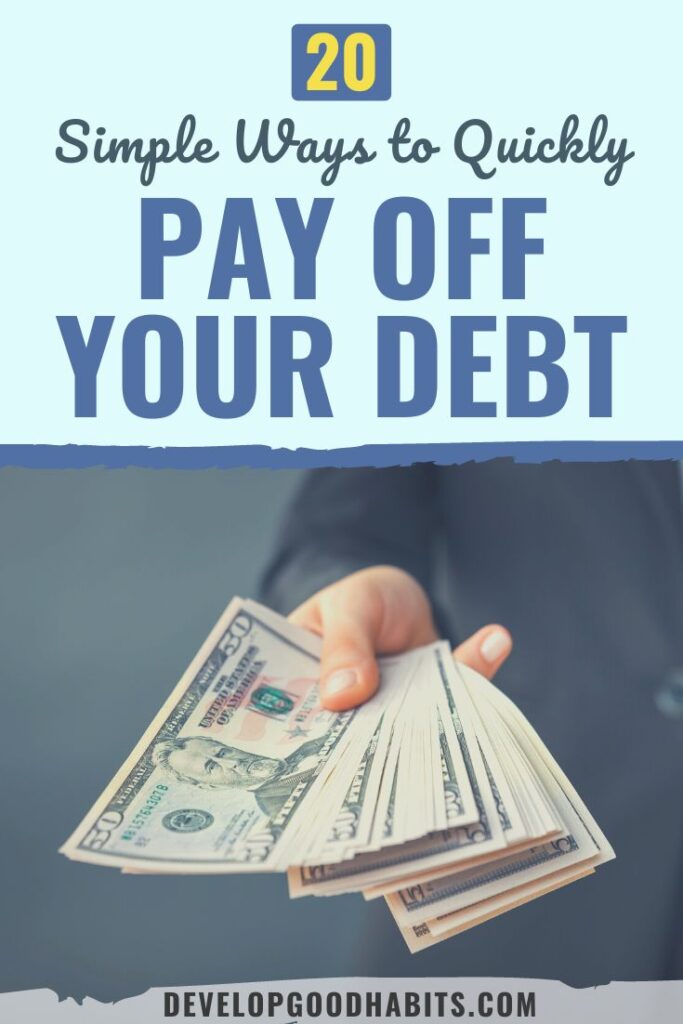
Debt can feel overwhelming, but it doesn’t have to control your life. By following a clear plan, you can pay off debt quickly, regain financial freedom, and even boost your credit score in the process. Whether you’re dealing with credit cards, personal loans, or other obligations, the strategies below will help you take charge of your finances.
1. Understand Your Current Financial Situation
Before you can pay off debt, you need a clear picture of where you stand. Start by listing all your debts, including:
- Total balance
- Interest rate
- Minimum monthly payment
This list will help you prioritize which debts to tackle first. It’s also essential to check your credit report for errors. You can request a free report once a year from AnnualCreditReport.com. Correcting inaccuracies can give your credit score an immediate boost.
2. Set a Realistic Payoff Goal
Paying off debt can feel daunting if you don’t have a target. Set a specific goal, such as “Pay off $5,000 of debt in 12 months.” Breaking it down into smaller milestones will make the process more manageable and motivating.
3. Choose a Debt Repayment Strategy
There are two popular methods to pay off debt quickly:
- Debt Snowball Method: Focus on paying off the smallest debt first while making minimum payments on others. Once the smallest debt is gone, move to the next one. This method provides psychological wins that keep you motivated.
- Debt Avalanche Method: Focus on the debt with the highest interest rate first, as it costs you the most money. This method saves more on interest over time.
Choose the approach that best fits your personality and financial situation.
4. Cut Expenses and Redirect the Savings
To free up extra money for debt repayment, reduce unnecessary expenses:
- Cancel unused subscriptions.
- Eat at home instead of dining out.
- Shop for sales and use coupons.
- Switch to cheaper alternatives for recurring bills like insurance and phone plans.
Every dollar saved should go directly toward paying off debt faster.
5. Increase Your Income
Cutting expenses is helpful, but increasing your income can accelerate debt repayment even more. Consider:
- Taking a part-time job or freelancing.
- Selling unused items online.
- Starting a side hustle such as tutoring, pet sitting, or ride-sharing.
Even an extra $200–$500 a month can significantly reduce the time it takes to become debt-free.
6. Consolidate or Refinance High-Interest Debt
If you have multiple debts with high interest rates, consolidating them into a single loan may help. A debt consolidation loan or a balance transfer credit card (with 0% introductory APR) can lower your interest and simplify payments.
Be cautious, though: only consolidate if you’re confident you won’t accumulate new debt during the process.
7. Make Extra Payments When Possible
Whenever you receive unexpected money—like a tax refund, bonus, or cash gift—put it toward your debt. Even small extra payments can shave months or even years off your repayment timeline.
8. Build an Emergency Fund
It may seem counterintuitive to save money while paying off debt, but an emergency fund prevents you from relying on credit cards when unexpected expenses arise. Aim for at least $500–$1,000 to start.
Having a cushion in place keeps your progress from being derailed by surprise bills.
9. Improve Your Credit Score Along the Way
As you pay off debt, your credit score will naturally improve. To speed up the process:
- Make all payments on time—payment history is the biggest factor in your score.
- Keep your credit utilization (the amount of credit you’re using relative to your limit) below 30%. Ideally, keep it under 10% for the best results.
- Avoid closing old accounts, as this can shorten your credit history.
- Dispute any errors on your credit report immediately.
A higher credit score not only saves you money on interest rates in the future but also opens up opportunities for better financial products.
10. Stay Motivated and Celebrate Progress
Paying off debt can be a long journey, so celebrate milestones along the way. Mark each debt you pay off and reward yourself with small, budget-friendly treats. Staying positive and motivated is essential to sticking with your plan.
Final Thoughts
Paying off debt quickly and improving your credit score requires discipline, consistency, and a solid strategy. Start by understanding your financial situation, choosing the right repayment method, and cutting expenses where possible. Combine these efforts with income-boosting strategies and smart financial habits, and you’ll be on the fast track to a debt-free life.
Remember, the sooner you take action, the sooner you’ll enjoy the peace of mind that comes with financial freedom. With each payment you make, you’re not just reducing debt—you’re building a stronger foundation for your future.